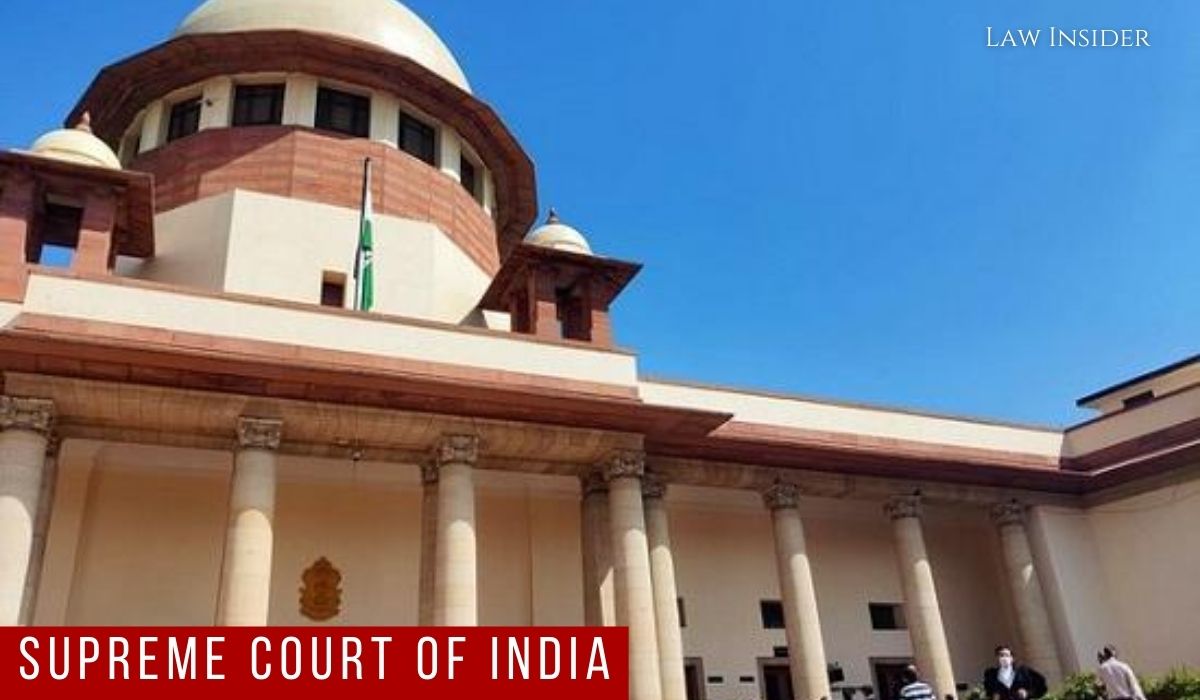Tanisha Rana
Published on: October 11, 2022 at 21:32 IST
On Monday, the Supreme Court ordered all high courts to provide information about criminal proceedings involving MPs and MLAs that have been pending for more than five years, along with any actions made to hasten their resolution.
Justices DY Chandrachud and Hima Kohli’s bench also revised its order from August 10, 2021, which stated that judicial personnel who are overseeing cases against lawmakers should not be replaced without the court’s prior approval.
The apex court took note of amicus curiae Senior Counsel Vijay Hansaria’s argument that numerous requests are being made by judicial officers to be released from their duties as special court judges because they have been promoted or transferred.
The bench amended the August 10, 2021, judgment and declared that the chief justice of a high court will have the authority to order the transfer of such judicial personnel.
“All the High Courts shall file an affidavit indicating the number of criminal cases pending against MP/MLAs for more than five years and steps taken for their speedy disposal. The affidavits shall be filed within four weeks,” the court said.
In addition to calling for a lifetime ban on politicians running for office after being convicted of a crime, Advocate Ashwini Upadhyay’s 2016 PIL also called for the quick trial of suspected parliamentarians and the creation of special courts across the nation for the purpose.
Hansaria, supported by Attorney Sneha Kalita, asserted that special courts are necessary for the swift resolution of criminal cases brought against legislators because the number of these cases is increasing despite repeated orders from the court.
The bench requested Hansaria to write down any instructions he would want to see granted and said it will take such instructions into consideration when deciding whether to pass them on the following occasion.
The top court had already agreed in August to take the PIL under consideration, which called for the lifetime disqualification of an elected official following a criminal conviction.
It had noted the argument that there was a “glaring difference” in the statute regarding parliamentarians’ ineligibility following criminal convictions under the Representation of the People Act when compared to other citizens who work for the government.
On the basis of Upadhyay’s petition, the Supreme Court has periodically issued a number of directives to ensure that cases against legislators be tried quickly and that the CBI and other agencies conduct their investigations quickly.
The top court had limited the state prosecutors’ authority on August 10 of last year and decided that they could not end their investigation of parliamentarians under the Code of Criminal Procedure (CrPC) without the high courts’ prior approval.
It had expressed significant disapproval over the Centre’s and its agencies’ failure to file necessary progress reports, including the CBI, and made it clear it would establish a special bench in the Supreme Court to oversee criminal cases involving politicians.
Hansaria had cited states like Uttar Pradesh, Uttarakhand, Maharashtra, and Karnataka as having attempted to drop criminal charges against politicians by utilising Section 321 of the CrPC, which gives prosecutors the authority to do so. This had led to cement the ultimate court’s decision.
In the relevant suo-motu writ petitions filed in accordance with its order, the top court had said that no prosecution against a sitting or former MP or MLA shall be dismissed without the high court’s permission.
The high courts are asked to review all withdrawals that have been filed since September 16, 2020, regardless of whether they have been resolved or not, in light of the rules established by this court, it had stated.
It also directed that judges of special courts considering cases against MPs and MLAs not be transferred pending further orders. This was a very crucial directive.

